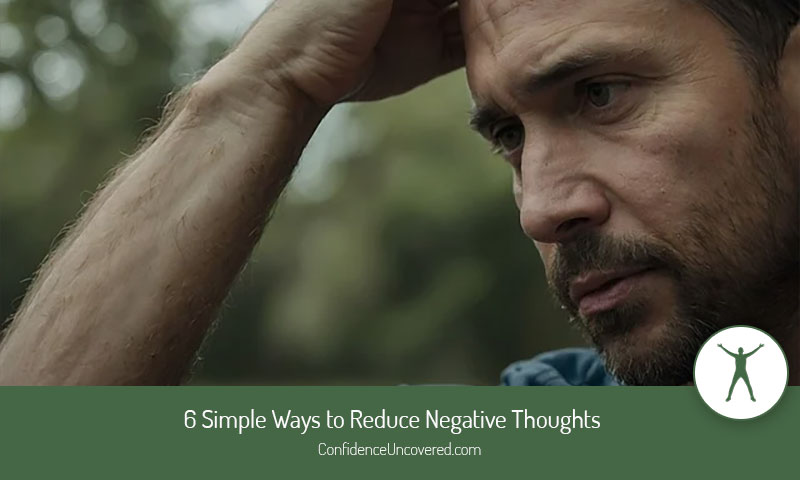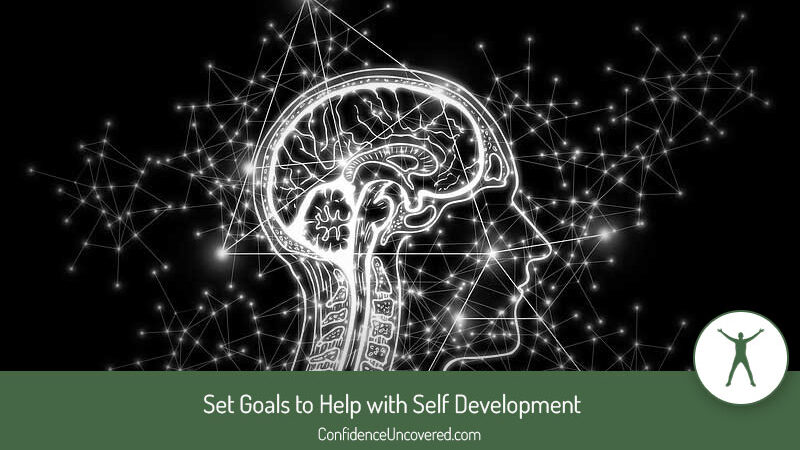6 Simple Ways to Reduce Negative Thoughts

The battle to reduce negative thoughts: A roadblock to self-confidence
Have you ever noticed how a single negative thought can spiral into a mountain of self-doubt?
You’re not alone! Many of us struggle with negative thoughts, and they can be a significant barrier when it comes to building self-confidence.
Let’s dive into why these pesky thoughts are such a problem and explore some simple strategies to turn that negativity around.
Why Negative Thoughts are a problem

Negative thoughts can be like uninvited guests at a party—they show up unannounced and take over the fun.
When you’re trying to build your self-confidence, these thoughts can undermine your efforts. Here’s how:
Self-sabotage:
Negative thoughts often lead to self-sabotage. For instance, if you think, “I’m not good enough to apply for that promotion”, you might not even try. This leads to missed opportunities and reinforces the belief that you’re not capable.
Fear of failure:

When you constantly dwell on what could go wrong, it creates a paralyzing fear of failure. This fear can prevent you from taking risks or trying new things, both of which are essential for growth.
Comparison trap:
Negative thoughts often arise from comparing ourselves to others. If you find yourself thinking, “They are so much more talented than I am”, it can lead to feelings of inadequacy and discourage you from pursuing your own passions.
Reduced motivation:
Constant negativity can drain your motivation. If you believe that you won’t succeed, why even bother trying? This lack of motivation can create a vicious cycle, making it even harder to build your confidence.
6 Simple ways to reduce negative thoughts
Now that we know why negative thoughts can be such a problem, let’s explore some straightforward ways to reduce them, and cultivate a more positive mindset.
1. Practice gratitude:
Start or end your day by listing three things you’re grateful for. This simple practice can shift your focus from what’s wrong in your life, to what’s going well, boosting your overall mood and perspective.
2. Challenge negative thoughts:
Whenever you catch yourself thinking something negative, ask yourself: “Is this thought based on facts or feelings?” If it’s based on feelings, challenge it. For instance, if you think, “I’m terrible at speaking to strangers”, remind yourself of times when you spoke well, to someone you didn’t know previously.
3. Surround yourself with positivity:
Limit your exposure to negative influences, whether it’s people, media, or environments. Instead, seek out supportive friends or motivational content that lifts you up. Follow social media accounts that inspire you, rather than ones that drag you down.
4. Use positive affirmations:
Create a list of positive affirmations that resonate with you, such as “I am capable”, or “I deserve good things”. Repeat these affirmations daily, especially when you feel self-doubt creeping in.
5. Mindfulness and Meditation:
Spend a few minutes each day practicing mindfulness or meditation. Focusing on the present moment can help you reduce negative thoughts, and lower anxiety. Apps like Headspace or Calm can guide you through the process.
6. Set small goals:
Break larger tasks into smaller, manageable goals. Celebrate each small success, which will help build your confidence gradually. For instance, instead of saying, “I want to get fit”, break it down to “I’ll walk 10 minutes a day”.
Final thoughts
Building self-confidence is a journey, and overcoming negative thoughts is a crucial part of that path. By practicing gratitude, challenging your thoughts, surrounding yourself with positivity, and incorporating mindfulness, you can create a more uplifting mental space. Remember, it’s okay to have negative thoughts from time to time, but don’t let them dictate your self-worth. You’ve got this!




